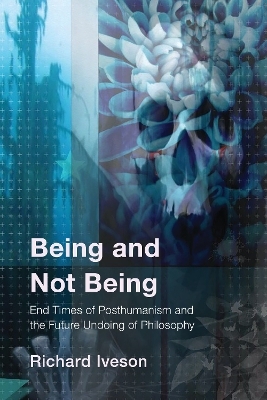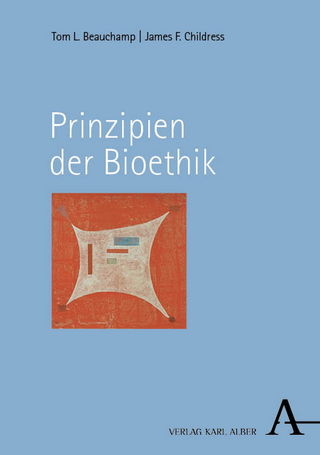
Being and Not Being
End Times of Posthumanism and the Future Undoing of Philosophy
Seiten
2023
Rowman & Littlefield (Verlag)
978-1-5381-8822-4 (ISBN)
Rowman & Littlefield (Verlag)
978-1-5381-8822-4 (ISBN)
In an era of short-termism that has produced disastrous long-term consequences for the planet, this book returns the concept of time to a philosophical reflection on pressing concerns facing us today. The book proposes a critique of scientific determinism that demands an urgent rethinking of causality and proposes a new ethical paradigm.
Against the grain of many contemporary theoretical positions that indulge in delusions of safety and certainty, Being and Not Being argues that contingency is definitive of the structure of being itself. As a result, any predictions about the future founded upon present or habitual states of being are necessarily subject to possible error given the unpredictability that is the condition of all emergent forms of being. Rather than signal the absence of an ethical dimension, this prior inscription of potential, which gives rise to profoundly unforeseen forms of being, necessarily invokes an a priori ethical demand that is common to biological and technological systems alike. This ethical demand transforms the ‘rules’ of critical and ethical engagement not simply with other, ‘inhuman’ forms of being, but with the future itself. Indeed, this ethical demand requires us to pose serious questions about the legitimacy and usefulness of any decisions made today on the back of predicted futures that erroneously presume the absolute determinability of all beings lacking the alchemical privilege definitive of life. As the exemplary figure of unfounded privilege, it is with Hamlet that the question of life ultimately ends, replaced instead by the extremophile as the figure of unforeseen futures that simply cannot be imagined in the present. To be is the potential to be otherwise, that is to say, to not be that which a given being is.
Against the grain of many contemporary theoretical positions that indulge in delusions of safety and certainty, Being and Not Being argues that contingency is definitive of the structure of being itself. As a result, any predictions about the future founded upon present or habitual states of being are necessarily subject to possible error given the unpredictability that is the condition of all emergent forms of being. Rather than signal the absence of an ethical dimension, this prior inscription of potential, which gives rise to profoundly unforeseen forms of being, necessarily invokes an a priori ethical demand that is common to biological and technological systems alike. This ethical demand transforms the ‘rules’ of critical and ethical engagement not simply with other, ‘inhuman’ forms of being, but with the future itself. Indeed, this ethical demand requires us to pose serious questions about the legitimacy and usefulness of any decisions made today on the back of predicted futures that erroneously presume the absolute determinability of all beings lacking the alchemical privilege definitive of life. As the exemplary figure of unfounded privilege, it is with Hamlet that the question of life ultimately ends, replaced instead by the extremophile as the figure of unforeseen futures that simply cannot be imagined in the present. To be is the potential to be otherwise, that is to say, to not be that which a given being is.
Richard Iveson is a postdoctoral research fellow in the Institute for Advanced Study of the Humanities at the University of Queensland. Under the general rubric of posthumanism and the posthuman, his current research focuses on the intersection of Continental Philosophy, emergent technologies and the philosophy of science.
| Erscheinungsdatum | 23.11.2023 |
|---|---|
| Verlagsort | Lanham, MD |
| Sprache | englisch |
| Maße | 159 x 236 mm |
| Gewicht | 562 g |
| Themenwelt | Geisteswissenschaften ► Philosophie ► Ethik |
| Sozialwissenschaften | |
| ISBN-10 | 1-5381-8822-8 / 1538188228 |
| ISBN-13 | 978-1-5381-8822-4 / 9781538188224 |
| Zustand | Neuware |
| Informationen gemäß Produktsicherheitsverordnung (GPSR) | |
| Haben Sie eine Frage zum Produkt? |
Mehr entdecken
aus dem Bereich
aus dem Bereich


